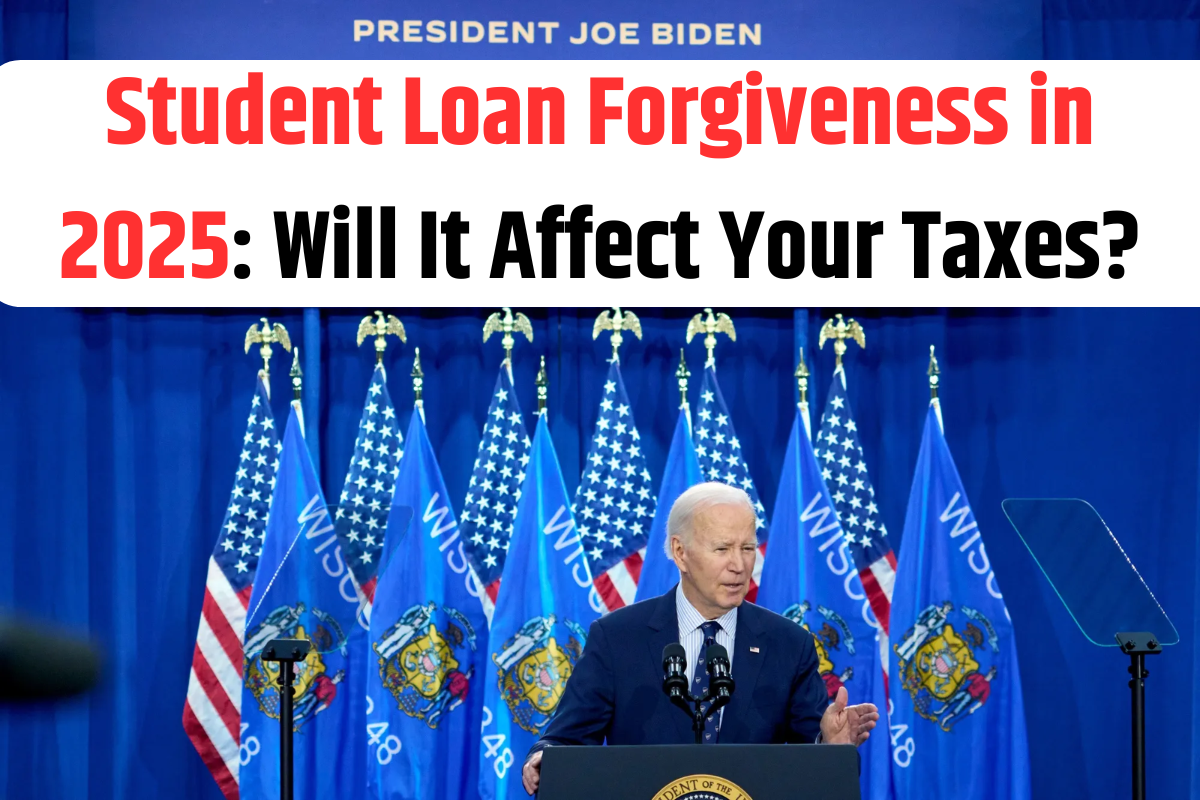In 2024, President Joe Biden made a significant decision that generated both praise and criticism: he enacted a plan to forgive federal student loan debt, amounting to over $180 million for 4.9 million borrowers. This sweeping move sparked concerns about the future of education and its broader economic implications. As the debate continues, many are left wondering how this decision might affect their taxes—especially with the possibility of future changes under a different administration.
Here’s what you need to know about how the forgiveness impacts your taxes and what you should keep an eye on.
Will Student Loan Forgiveness Impact My Federal Taxes?
For now, you don’t need to worry about paying federal taxes on your student loan forgiveness. Under the Bailout Act of 2021, any student debt forgiveness through the Public Service Loan Forgiveness program, income-driven repayment plans, or borrower defense is exempt from federal taxation until 2025.
This means that if you received debt forgiveness under the Biden administration, you won’t have to report it as taxable income on your federal tax return—at least for the time being.
Could This Change Under a Future Administration?
While the federal government has provided a temporary reprieve, things could change depending on future policies. There’s potential that the next administration, led by figures like former President Donald Trump, may introduce new reforms or plans to address the student debt crisis.
Also Read – Big Payout: $6,000 One-Time Benefit Approved for 2025 – Find Out Who Qualifies
Though many benefited from the forgiveness under Biden’s leadership, the long-term effects remain uncertain. Stay alert to any changes in federal policies that could impact how student loan forgiveness is handled post-2025.
Be Aware of Potential State Tax Implications
While the federal government may have forgiven your student debt without tax consequences, that’s not necessarily the case with state governments.
Some states do not align with federal tax laws and may choose to tax the forgiven loan amount. According to higher education expert Mark Kantrowitz, it’s important to understand that states can impose their own taxes on forgiven student loans.
What Should You Do?
To avoid any unexpected tax bills, check with your state or a tax professional to determine if any tax obligations are triggered by your student loan forgiveness. Even if you’re clear on the federal side, it’s always wise to confirm that there aren’t state-specific tax rules you need to account for.
If the American Rescue Plan ends or state laws change, more states could potentially tax forgiven student debt. Stay informed and keep an eye on any legislative updates that may impact your tax situation.
Frequently Asked Questions (FAQ)
Will I have to pay federal taxes on my student loan forgiveness?
Not for now. Under the Bailout Act of 2021, federal student loan forgiveness is exempt from taxes until 2025. This applies to debt discharged through federal programs like Public Service Loan Forgiveness or income-driven repayment plans.
Can state governments tax my forgiven student debt?
Yes, some states do not follow federal tax rules and may impose taxes on the forgiven loan amount. It’s essential to check with your state or a tax professional to understand if you’re liable for state taxes.
Will I owe taxes if forgiveness happens after 2025?
It’s unclear. If the exemption under the Bailout Act ends after 2025, it’s possible that forgiven student loans could become taxable again. Keep an eye on federal policies for potential changes.
Also Read – $3,089 for Couples: $1,450 Each – Check Eligibility and Payment Details
What should I do if I’m unsure about my tax obligations?
Consult with an accountant or tax professional who can provide guidance tailored to your specific situation. They’ll help you navigate both federal and state tax laws and avoid surprises.
Could future changes under a new administration affect my forgiveness?
Yes, different administrations could introduce changes to student loan forgiveness programs. While the Biden administration has offered forgiveness, future presidents may propose alternative solutions, which could impact the tax treatment of any forgiveness.
Stay informed, and keep checking for updates to ensure you’re on top of any changes that may affect your taxes related to student loan forgiveness!




